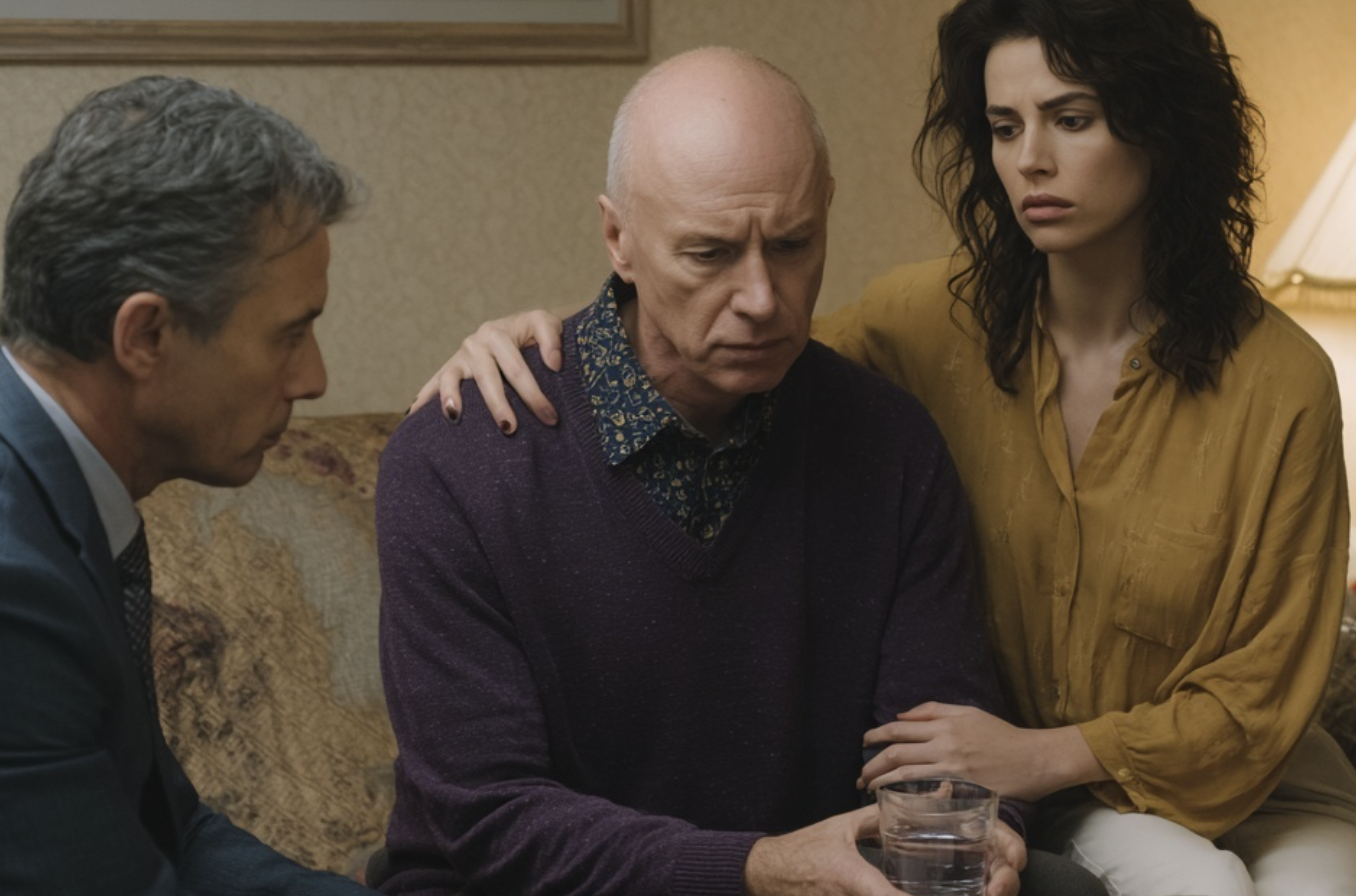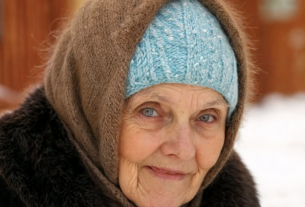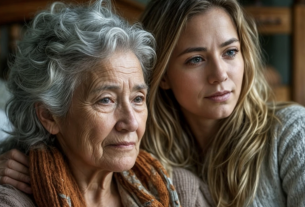When I got married at thirty, I didn’t have a penny to my name. No, I wasn’t poor—I just had no savings, no inheritance, no financial cushion. My wife, Anna, came from the same kind of family, where every kopek was accounted for. Her only close relative was her father, a quiet, taciturn man in his sixties living on a modest pension.
Soon after our wedding he moved in with us. I didn’t see anything wrong with that. He was Anna’s father, and I respected her wish to take care of him. What I couldn’t possibly foresee was that he would stay with us for many, many years.
Two decades. He lived under our roof for twenty years.
In all that time, not once did he offer to help pay the electric or water bills, buy groceries, or cover his medicine. He never volunteered to watch the kids, never cooked dinner, never cleaned up after himself, and he rarely joined in conversation. Some of our acquaintances jokingly called him “the neighborhood’s chief homebody.”
I tried to remain patient, but sometimes the irritation rose right to my throat. I’d come home after a hard day, open a nearly empty fridge, and see him sitting in the living room in his armchair, calmly sipping tea as if that were the natural order of things. I remember once muttering through my teeth, “Must be nice—living without paying for anything…” But I never said it out loud where he could hear.
Every time anger started to boil in me, I stopped myself. He’s old. He’s my wife’s father. If not us, who would look after him? And so, over and over, I swallowed my resentment and carried on.
That’s how our days flowed into years. Our children grew up. We scraped by—sometimes living from one paycheck to the next—but we managed. And he stayed the same: silent, motionless, like part of the furniture, a familiar element of the home’s scenery.
Then, one morning, it was all over. As usual, Anna made his breakfast—a bowl of oatmeal. When she went to call him, she found him sitting still, his hands resting calmly on his knees. He had passed away quietly in his sleep.
The funeral was very modest. Since he had no other relatives, all the arrangements and expenses fell on our shoulders. I didn’t complain: to me it was the last duty I owed. After all, he had lived with us for twenty years, whether I liked it or not.
Three days later, as life was slowly settling back into its usual rhythm, the doorbell rang. On the threshold stood an elderly man in a formal suit, a leather briefcase in his hand.
“Are you Mr. Artyom Semyonov?” he asked politely.
I nodded, feeling a flicker of unease.
He entered and set his briefcase on the coffee table in the living room.
Chapter 1
The stranger introduced himself: Sergei Petrovich, an attorney. His face was impassive, but there was a certain solemn gravity in his eyes.
“Your father-in-law, Ivan Grigoryevich Belov, left a will,” he said clearly. “In this document, you and your wife are named as the sole heirs.”
My mind refused to process what I’d heard.
“Heirs?” I repeated, bewildered. “Heirs to what? He had nothing but his pension and an old suitcase with war medals.”
Sergei Petrovich allowed himself a faint, barely noticeable smile.
“That’s just it, Artyom. Your father-in-law left you a house. And funds in a bank account. The amount totals seven hundred and twenty thousand dollars.”
The air seemed to thicken around us. I looked at Anna—she had gone as pale as a sheet.
“This… must be a mistake,” she whispered. “Papa? Seven hundred thousand? That can’t be.”
The lawyer gently but firmly shook his head and laid a certified copy of the will before us. Everything was official: signatures, seals, the date—the document had been drawn up two months before his passing.
Chapter 2
We sat in complete silence, unable to say a word. Scenes from the past flashed before my eyes—twenty years spent side by side with a man I had thought of as a quiet, unassuming lodger. He rarely spoke, ate little, spent his days at the window with a cup of tea and old newspapers. Sometimes he dozed. Sometimes he would slowly write something in a thick notebook.
But an estate? Savings? It seemed utterly unreal.
“Excuse me,” I finally managed, trying to collect myself. “Are you absolutely sure there’s no mix-up? Maybe he… sold something before he died? Or…”
Sergei Petrovich delicately cut off my wandering guesses.
“All the documents have been thoroughly verified. The funds were in an account opened in his name twenty-five years ago. The heirs named are you and Anna.”
He handed us a heavy envelope. Inside was a key and a short note written in an unsteady, trembling hand:
“Artyom, forgive the trouble. Everything I had now belongs to you. Don’t judge me harshly. You can’t imagine what I had to go through to save this.”
Anna began to cry softly. I sat there, clutching the slip of paper, as a hot, heavy wave of shame washed over me.
Chapter 3
The next day we went to the address listed in the will. It was a small, time-blackened wooden house on the very edge of the city, looking long abandoned. The paint on the shutters had peeled; the yard was overgrown with weeds.
The key from the envelope fit the lock perfectly. Inside, it smelled of dust, old paper, and time.
Right on the table stood a metal box. Inside, neatly arranged, were stacks of notebooks, cracked photographs from the war years, several letters, and… an old, worn diary.
With trembling hands, Anna opened to the first page.
“1944. France. If I’m destined to return alive, I must repay them this debt…”
We read, holding our breath.
It turned out that during the war Ivan Grigoryevich had saved the life of a young French businessman—the son of the owner of a small jewelry workshop. In gratitude, the man registered a share of the family business in Ivan’s name. After the war, Ivan never returned to France, but that little workshop eventually grew into a successful chain of stores. And his share—ten percent—had continued to yield income all those years. The money quietly accumulated in an account no one knew about.
Chapter 4
We sat in his old house until late evening. Every object breathed the history of a life lived in the shadows—the worn armchair by the window, the stack of letters with French stamps, a small box with a “For Courage” medal.
“Why didn’t he tell us anything?” Anna asked softly, almost in a whisper. “Why did he live so modestly, almost in need, if he had those means?”
I thought for a moment. And then it struck me. He didn’t want to live for himself. He lived for her. So that one day she would have the security he himself had never known.
I remembered how he would silently hand me a cup of tea when I was especially anxious about the bills. How sometimes, passing by, he would simply lay his hand on my shoulder at a hard moment. No extra words. He was just there.
And the shame surged again, searing and merciless.
Chapter 5
In one of the notebooks we found an envelope marked: “To be opened only after my death.”
Inside was a letter addressed to both of us.
“Artyom, Anna,
I know you were often irritated with me. I felt it, even though you tried not to show it.
Forgive me.
I didn’t tell you about the money because I didn’t want it to change anything between us. I saw how honestly you live, how hard you work. You are the kind of people I can rely on.
This money is not a reward. It is protection.
Artyom, you taught me to forgive myself. You never turned me out, even when I felt I’d become a burden.
And you, Anna—you were the light of my life all these years.
I wasn’t the best father, but I hope I managed to become part of your home.
With love,
Ivan.”
Chapter 6
We came home completely different people. The house where his quiet footsteps had sounded for twenty years now felt empty, and yet it was filled with a new, profound meaning.
Anna completed all the inheritance paperwork, and a month later the very sum appeared in our joint account.
I assumed she would immediately want to buy something expensive—a new car, a larger apartment. But Anna looked at me and said:
“We’ll create a fund. A fund in my father’s name. To help veterans who have no family left. Let it make life a little easier for someone.”
I couldn’t help smiling.
“He would be proud of you.”
Chapter 7
A week after the fund’s official opening, the bank called.
“Mr. Semyonov,” the manager said politely, “while processing the documents we discovered another safe-deposit box registered to Ivan Grigoryevich. You may want to come in.”
In the box lay a small envelope and an old photograph: Ivan Grigoryevich in uniform, embracing a young woman holding a small child.
On the back was written: “Marie and little Jean. Paris, 1946.”
And in the letter—just a few lines:
“If fate has arranged for you to read this, tell them I never forgot them. That I was grateful for every day I had the chance simply to breathe.”
At the bottom an address for a notary office in France was added.
Anna looked at me, a silent question in her eyes.
“Do you think… he had a family there?”
I only shrugged.
“Maybe. Or maybe they were the ones whose lives he once saved. But one thing is clear—he wanted us to know.”
Chapter 8
In the spring we went to Paris. The French notary confirmed: yes, Ivan Grigoryevich Belov was indeed an owner of a share in the company “Maison Duret.” We were received in an old stone building where archives from the 1940s were still kept.
The senior manager, a silver-haired, elegant man named Jean Duret, turned out to be the very child from the photograph.
He couldn’t hold back tears when we told him who we were.
“Your father-in-law saved my father’s life,” he said, his voice trembling. “And he refused to take any money. He left only one note: ‘If your business ever prospers, help those who truly deserve it.’ And we did. All these years.”
He led us to his office and showed us a wall where an old black-and-white photograph of Ivan Grigoryevich hung with a simple, eloquent caption: “The man who gave us life.”
Chapter 9
On the way home I thought about how true greatness sometimes lies not in loud words or in deeds that everyone sees.
It lies in quiet, daily patience. In the readiness to live modestly and unnoticed so that one day other people’s lives might be better and brighter.
Anna and I began a new life. We opened a small shelter for elderly people left alone. A modest plaque hung on the door: “Ivan’s Home.”
Every time I pass by, I catch myself thinking that somewhere, just beyond our understanding, he is sitting in his armchair with a cup of tea, looking out the window. Calm. Having finally found his peace.
Epilogue
Five years have passed. Our fund has helped many people. Not long ago one of our beneficiaries, a gray-haired veteran, said to me: “Your father-in-law was a very wise man. He understood that a person doesn’t live to hoard wealth, but to leave at least a little light behind.”
And that evening, for the first time in a long while, I set two cups of tea on the kitchen table.
One for me.
And one for him.
Sometimes the most precious gifts are given to us by those we considered the most unnoticeable.
And gratitude is not just a word. It is an entire life lived with the simple knowledge that you’ve already been given everything that truly matters.



